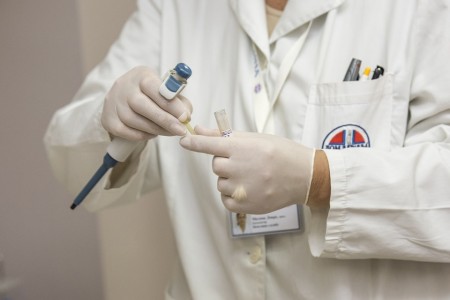Insulin Resistance May be Associated with Stroke Risk
Insulin resistance, a condition in which insulin produced by the body becomes less effective in reducing blood glucose levels, appears to be associated with an increased risk of stroke in individuals without diabetes.
Blood Thinner Rivaroxaban Beats Aspirin for Clots and Thromboembolism
A McMaster University study discovered that the blood thinner rivaroxaban is better at preventing future blood clots than aspirin, and just as safe. An international...
Seaweed Capsules May Lead to Injection-Free Diabetic Living
A microencapsulation method, developed by OIST researchers, offers hope to patients suffering from type 1 diabetes to return to a life free of insulin...
Researchers Sound Alarm: Watch Children’s Calories
In recent study, portion sizes and number of calories per bite were varied for lunches served to children in their normal eating environment. The...
Metformin May Reduce Risk of Open-Angle Glaucoma in Diabetic Patients
A new study finds that taking the medication metformin hydrochloride was associated with reduced risk of developing the sight-threatening disease open-angle glaucoma in people...
Menopause Lowers Good Cholesterol Benefits, Increases Artery Hardening
Good cholesterol (HDL) is supposed to help reduce the risk of heart disease, but a new study shows that women have a higher risk...
Eat with a Light Eater and You Will Eat Less
According to a new study, the amount your dining companions eat influences how much you will eat. Learn about what researchers call social modelling. How...
Incidence of Fatty Liver Disease Rises as Obesity in Children Increases
Researchers are taking a closer look at Non-Alcoholic Steatohepatitis, more popularly known as Fatty Liver Disease, whose incidence is rising as obesity in children increases.
Treatment Combo Helps Diabetes Control, Weight Loss
A recent trial has led to an interesting discovery. A combination of two type 2 diabetes treatments leads to improved glucose control and weight...
Risks Of Sulfonylurea Drugs In The Treatment Of Diabetes Mellitus
Sulfonylurea drugs, used in the treatment of patients with diabetes mellitus to lower blood sugar levels, have been suspected since the 1970s of increasing cardiovascular mortality as well.
Loss of Stem Cells Correlates with Premature Aging in Animal Study
Researchers found that deleting a gene important in embryo development leads to premature aging and loss of stem cell reservoirs in adult mice. This gene, ATR, is essential for the body's response to damaged DNA.
Diabetes Medication Linked with Increased Risk of Heart Problems, Death
Older patients treated with the diabetes medications known as thiazolidinediones (which include rosiglitazone) had a significantly increased risk of heart attack, congestive heart failure and death, compared with the use of other hypoglycemic drugs, according to a recent study.
Bariatric Surgery Reduces Long-Term Cardiovascular Risk in Diabetes Patients
Bariatric surgery has been shown to reduce the risk of heart attack and stroke in patients with diabetes.
Pesticide Exposure in Womb Linked to Slow Metabolism, Obesity and Diabetes
The study is the first to show that developmental exposure increases the risk of females later developing metabolic syndrome -- a cluster of conditions that include increased body fat, blood glucose, and cholesterol.
Discovery May Lead to Diabetic Vascular Disease Prevention, Treatment
Researchers report that a molecule called pre-kallikrein could be a target for preventing and treating whole-body diabetic vascular disease. In an article published in the...
Slower Care For Heart Attack Patients Treated Off Hours And Weekends
Heart attack patients treated with primary percutaneous intervention at hospitals after hours and on weekends wait longer to receive clot busters and other treatments and have a higher risk of death than those treated during regular hours.














